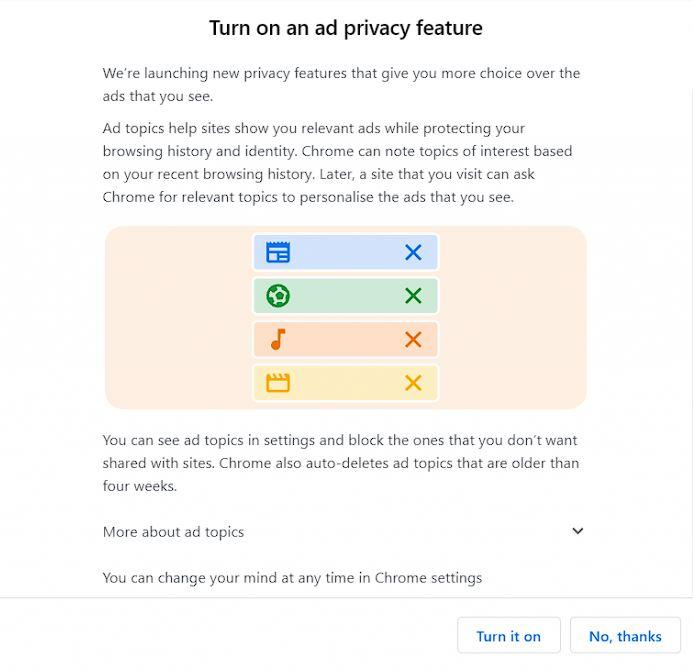It has been more than two years since Google announced that it was working on an alternative to Internet cookies that is much more respectful of user privacy. Its launch would mark a before and after in the field of Internet privacy, and sought to change from identifying cookies of specific users to a grouping system by cohorts, or groups, of similar interests. Although Privacy Sandbox is almost ready, Google continues to encounter barriers and impediments that force it to delay its launch. And, today, a new one arrives.
Google began working with Privacy Sandbox last year, with the release of Google Chrome 115. This new API seeks to do away with individual tracking cookies so that all users can have more privacy when connecting to the network. Privacy Sandbox thus wants to put an end, above all, to cross-site cookies, which are used, among other things, to show personalized advertising to users.
Given Google’s advantageous position in the Internet market, Privacy Sandbox was not going to be a normal and ordinary alternative, but was going to be an imposition on all users, all websites and all Internet companies. However, it seems that things are not going as the company expected for Google.
New challenges for Privacy Sandbox
Google is willing to impose the use of Privacy Sandbox, or another similar alternative (such as the API that Microsoft is working on) in order to end cross-site cookies. But, in addition to the fact that websites are not prepared for change, a new regulatory body has just come into play that is going to give Google more than a headache: the UK Competition and Markets Authority (CMA).
The CMA assures that this alternative, although it is better than cookies, still does not sufficiently protect user privacy, so it is still not a real alternative that protects privacy as promised.

Google assures that it is working with all these organizations in order to demonstrate its operation and be able to adjust it according to the regulations of each regulator. But this is going to take even more time for Google, so eventually the launch of Privacy Sandbox is going to be postponed even further. The Internet giant had planned to forcibly deactivate the use of third-party cookies for 1% of users in favor of Privacy Sandbox in the first quarter of 2024, and this has been, once again, postponed indefinitely.
Will we ever see an Internet without cookies?
It seems that the arrival of Google’s Privacy Sandbox is going to be very long. Meanwhile, other companies, such as Microsoft, are also working on another alternative API that allows users to have more control while offering greater privacy.
There are other browsers that are already at war with third-party cookies as well. For example, Safari, Apple’s browser, allows them, but has much stricter controls to make sure they don’t exceed its capabilities. And Firefox, on the other hand, blocks them by default in its browser, since the only thing they are used for is to identify users and, really, they do not do anything good.
We will have to see how Privacy Sandbox evolves and if it is really capable of doing away with cookies or remains an experiment.














